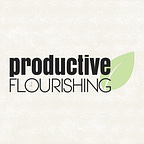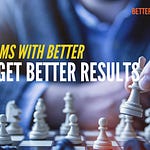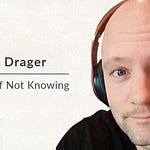In today’s episode, Leah and Charlie discuss an array of topics, like how mindfulness may be unintentionally excluding people from different religious faiths, and how people in organizations can make room for an inclusive conversation about introspective practices that respect everyone’s beliefs. They also discuss the traps of creating “universal” solutions that stamp out individuality in other cultures. Leah is a business consultant and author who helps people integrate mindfulness and productivity.
Key Takeaways:
[1:48] - We often use mindfulness as an agnostic and inclusive way to pull people into a practice of meditation or thoughtfulness, but sometimes mindfulness can be exclusive.
[2:48] - Right now, Leah is working on an academic case that looks at how different companies are bringing in mindfulness - their metrics, how it’s being received - as well as the consequences and challenges. In corporate settings, there hasn’t been as much dialogue about this topic as there has been in the field of education.
[4:25] – In her work, Leah heard the comment that businesses are becoming the new church, or a place where conversations about values are happening. On the one hand, this is exciting, but there are better ways to approach these conversations and ways that could come across as exclusive or offensive. This type of conversation isn’t quite as prevalent in the corporate world.
[6:06] – It is important to think about the context of the major dominant culture and its values versus alternative values. Sometimes, the ways we talk about mindfulness can be exclusive of certain groups (most commonly Christians here in the US). It is important to make room for other ways of thinking, and consider different words for the same thing.
[9:15] – How can we approach this conversation at the organizational level? Leah highlights the importance of being up front about the goals of the conversation, and inviting varying viewpoints without judgment. There should be a respect for our ability to learn from one another.
[12:10] – Historically, Christianity, Islam, and Judaism have been the most exclusive religions. When discussing your beliefs, it is important to do it in a respectful way that informs others of where you’re coming from, while valuing where they’re coming from as well. This invites a mutual understanding of each other’s languages as well – you don’t have to use the same terminology across the board, but you have to understand what’s being said. It’s not conversion practice; it is creating a space to have a quiet and introspective time.
[17:15] – What often happens is that people dodge conversations when they have the opportunity to get to know someone on a deeper level. Having a shared goal can help make these conversations easier. These sorts of conversations aren’t a part of education anymore, and it makes it hard to have those conversations later on in our professional lives. It can be daunting to ask questions while worrying about being insulting. Not having these conversations can unintentionally lead to people getting offended anyway.
[21:00] – Having conversations with others to learn about their beliefs and practices can raise awareness of their culture so you know how to coexist (personally and professionally) in a way that respects everyone’s beliefs. When you have these conversations, it’s important not to come from a place of judgement, but as a way to understand how another person interacts with the world.
[25:03] – One of the things Leah has been doing at work is working with some of the biggest oil companies to explore how to implement mindfulness in the context of improving safety. With increased intention to our attention, there will be an impact on safety and good outcomes, but you have to speak a language that everyone can relate to. You have to spend time with people and learn their language and see what is going to work for the people you’re trying to reach.
[27:15] – Trying to create a universal “plug and play” system may end up overriding cultural and personal differences. A great way to make sure that you’re being culturally relevant is to make sure you’re hiring people from that culture to run programs and work in the management system. Charlie talks about the dichotomy between local people doing the work and the management being of an outside culture.
[30:30] – The only way to surface our strongest assumptions is to get out of the places where the assumptions universally apply. When trying to create a productive culture in a workplace, corporations have to make sure they are thinking about the conditions that will enable everyone in the workplace to thrive.
[33:45] – Knowing the culture of an organization beforehand is important in making sure it will be a good fit. Organizations should be asking what they’re optimizing their culture for, and individuals should be thinking about what they’re optimizing their career around. If you have the option, pick a place where the culture will also enhance your career goals.
[36:10] – Undergrads, or anyone, trying to decide what to do for your career, get somewhere near it so you can learn about the culture of that career and how you fit into it. Before you rule something out, if you have the opportunity, try it out. Experiential learning is the best learning.
[41:50] – Leah’s challenge is to go to someone in your life (school, workplace), who comes from a background different than your own. Ask them questions about it, and make the choice to tell them you want to learn more – don’t let fear of the conversation or saying the wrong things stop you.
Mentioned in This Episode:












